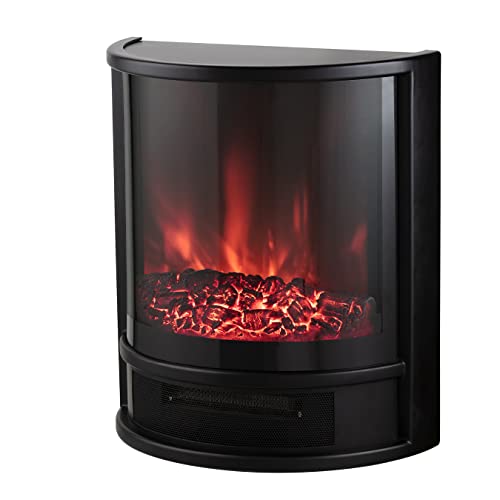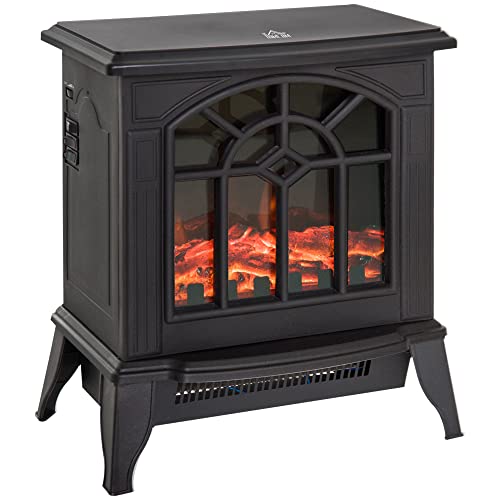How To Beat Your Boss On Wood Burner Fireplace
페이지 정보

본문
 How to Get the Most From a Wood Burner Fireplace
How to Get the Most From a Wood Burner Fireplace Unlike traditional open fireplaces wood stoves are specifically designed and optimized to burn wood. This enables them to comply with stricter emission standards.
Unlike traditional open fireplaces wood stoves are specifically designed and optimized to burn wood. This enables them to comply with stricter emission standards.Wood burning stoves produce dancing yellow flames and cosy crackling noises. They also provide a primal feeling of warmth. The smoke that is produced is contaminated by air pollutants such as benzene, formaldehyde, and polycyclic aromatic hydrocarbons.
Efficient
Fireplaces and stoves that burn wood offer a stunning and natural heat to your home, but they are also incredibly efficient. A high-quality wood burner can be able to achieve an Ecodesign rating as high as 77%. It is crucial to get the most benefit of your log stove particularly with the increasing energy costs. The good news is it's now easier than ever before to do!
The moisture content of firewood is an important factor that determines how efficient a wood-burning stove is. This is why we suggest only using wood that is seasoned, that has been dried for at least one year, and biofireplace often two years. The more dry the wood the more efficiently it burns, which means less smoke and harmful emissions.
Another benefit of a wood-burning stove is that it's a low carbon source of fuel, which is great for the environment. Additionally, by purchasing locally sourced firewood you are aiding in the management of woodlands which is a good aspect for wildlife.
In terms of maintenance concerned, the only requirement for a wood stove is to regularly remove and scoop up the ash. This can be a little bit of a hassle but is well worth it in order to ensure you get the maximum heat from each and every log. If you allow the ashes 2-3 days to cool completely and then, they can be used as a non-toxic and environmentally friendly ice melt. They can also be used to polish jewellery or absorb the odors.
A wood-burning fireplace is a timeless classic. Although they're not as popular than gas fires however, there's no denying the charm and enthralling sound of a roaring log fire. They're perfect for cosying up to on cold evenings and are a great method of creating an inviting and warm space within your home. Making the investment in a top-quality wood stove will pay off for many years. Our chimney sweeps are on hand to assist you in getting the most out of your stove - give us a call now to find out more.
Low Carbon
Wood burners that burn efficiently and cleanly are the best method to save money while keeping your home warm. Additionally, they can also assist in local woodland management, which is a excellent way to help the wildlife in your local area.
Wood-burning stoves and fireplaces produce very little pollutant if they are properly maintained and operated with dry, seasoned and dry firewood. However, when they are not maintained well or used with poor quality wood, the smoke produced by them contains fine particles (known as particulate pollution) that can irritate the lung and other organs. It also contains carbon monoxide as well as harmful air pollutants such as benzene, formaldehyde and polycyclic aromatic hydrocarbons. Inhaling this kind of air pollution can cause lung irritation wheezing, coughing and asthma attacks and may even cause serious health issues like cancer, heart disease or premature death.
Some people are worried that wood-burning stoves contribute to climate changes however this isn't true. Burning wood produces energy that is carbon neutral. The wood absorbs carbon dioxide throughout its lifespan. When it is burned, the carbon is released into the atmosphere.
The wood is local, which decreases the amount of pollution produced during the transport process. It is important to use hardwoods that are seasoned and of top quality. They burn longer and more evenly than softwoods.
Modern wood stoves, such as those manufactured by Charlton & Jenrick, emit less carbon dioxide than older stoves. They have been certified to meet 2020 EPA standards which are significantly more strict than previous emission limits.
To avoid the buildup of exhaust inside your home, all wood burning stoves must be vented completely to the outside. All of our DEFRA-exempt and clean burn stoves can produce very clear exhaust by keeping the flames in the vicinity of the wood logs and by using dry, seasoned firewood.
A wood-burning stove that has a catalytic converter or hybrid unit can provide the best low-carbon solution for heating. These units re-ignite the gasses and particulates from the initial combustion in a subsequent stage by mixing them with superheated air. They then channel the remaining gasses and particulates through a catalytic combustor for the third and final combustion, reducing emissions to a level that is well below the government standards.
Clean Burn
Cleanburn wood stoves are engineered to burn fuel with the highest efficiency that is possible. This results in a minimum amount of dust emissions into the atmosphere when burning wood. The air management system of the stove controls the intake and exhaust of gases to ensure the combustion process is conducted in a safe and controlled environment. It also regulates flame height to maximise heat output and minimise emissions.
This means that your chimney and surrounding area will be cleaner than older stoves. Particulate matter (also known as particle pollution) from wood that is not fully combusted causes respiratory problems such as wheezing and coughing and can lead to the development of heart disease as well as stroke, diabetes, and other serious health problems. Wood burning is also a contributor to poor air quality in cities.
The smoke from poorly combusted wood is a mixture of fine particulate pollution as well as hazardous air pollutants like carbon monoxide volatile organic compounds nitrogen oxides, benzene formaldehyde, and polycyclic aromatic hydrocarbons. These particles can get into the organs of the lungs which can cause discomfort, damage and even death. Airborne dust can also contaminate surfaces in your home, giving them a gritty sensation.
If you're using a fireplace with wood burning, it's important to only use firewood of the highest quality that has been properly seasoned and dried. Hardwoods such as oak, ash, and beech are the best choice for heating. Hardwoods have a higher density and BTU content, and they provide more heat than softwoods.
Contact your local authority to determine whether they have any regulations regarding wood burning. These rules could include rules regarding odors or nuisances, as well as visible smoke emissions or smoke opacity restrictions.
If you have a wood stove with glass doors it is essential to keep the glass clean of dirt and deposits. You can make use of a dry towel or oven cleaner spray to do this. You can also add bicarbonate soda mixed with water to the glass.
Regular maintenance is also important for your chimney and stove. This includes regular chimney cleanings that remove creosote and ensure proper functioning of the flue. Also, make sure you mark dates for inspections on a regular basis in your calendar, since this will help you avoid expensive repairs and prolong the life of your wood burner.
Low Maintenance
Wood burning fireplaces are popular due to their natural warmth. This kind of fireplace needs some maintenance and upkeep. The chimney, flue and stove can all be the cause of house fires if they are not maintained and cleaned regularly. These fireplaces shop are also an excellent source of heat when the power goes out, particularly in winter when snowstorms can cause branches to fall from trees and rip down power lines.
By using a wood stove to heat your home, you can reduce your carbon footprint when compared to other fossil sources of fuel like gas. Modern wood stoves and inserts are made to comply with EPA (Environmental Protection Agency) standards which mean they produce very low emissions. The more seasoned the wood is, the more efficient it will be which means you'll burn less to generate the same amount of heat.
The fireplaces need some maintenance and care. They must be kept clear of materials that ignite and have a screen in place. Air flow will be improved by keeping the grate clear of ash and debris. This will keep the fire burning longer and your home clean. You should have your stove and chimney cleaned at least twice per year to avoid creosote accumulation which could create a fire hazard and a blockage that can hinder the flow of air.
A wood burning stove will need to be tended constantly and it can take a while for a beginner homeowner to learn how to light, ignite, and maintain a steady ethonal fire in the fireplace. Once you've learned the art of burning, your wood burning stove will be a source for warmth and comfort within your home.
wood fireplaces burning fireplaces have been around in one form or another for more than 500 years. They've gained a lot of attention due to their energy efficiency, sustainability and the natural warmth of real wood. Talk with your local Regency dealer about the advantages of wood stoves or inserts for your home if you're planning to buy a new heater.
- 이전글16 Must-Follow Instagram Pages For Double Glazed Windows Manchester-Related Businesses 24.11.18
- 다음글The 10 Most Terrifying Things About Sofas L Shape 24.11.18
댓글목록
등록된 댓글이 없습니다.



